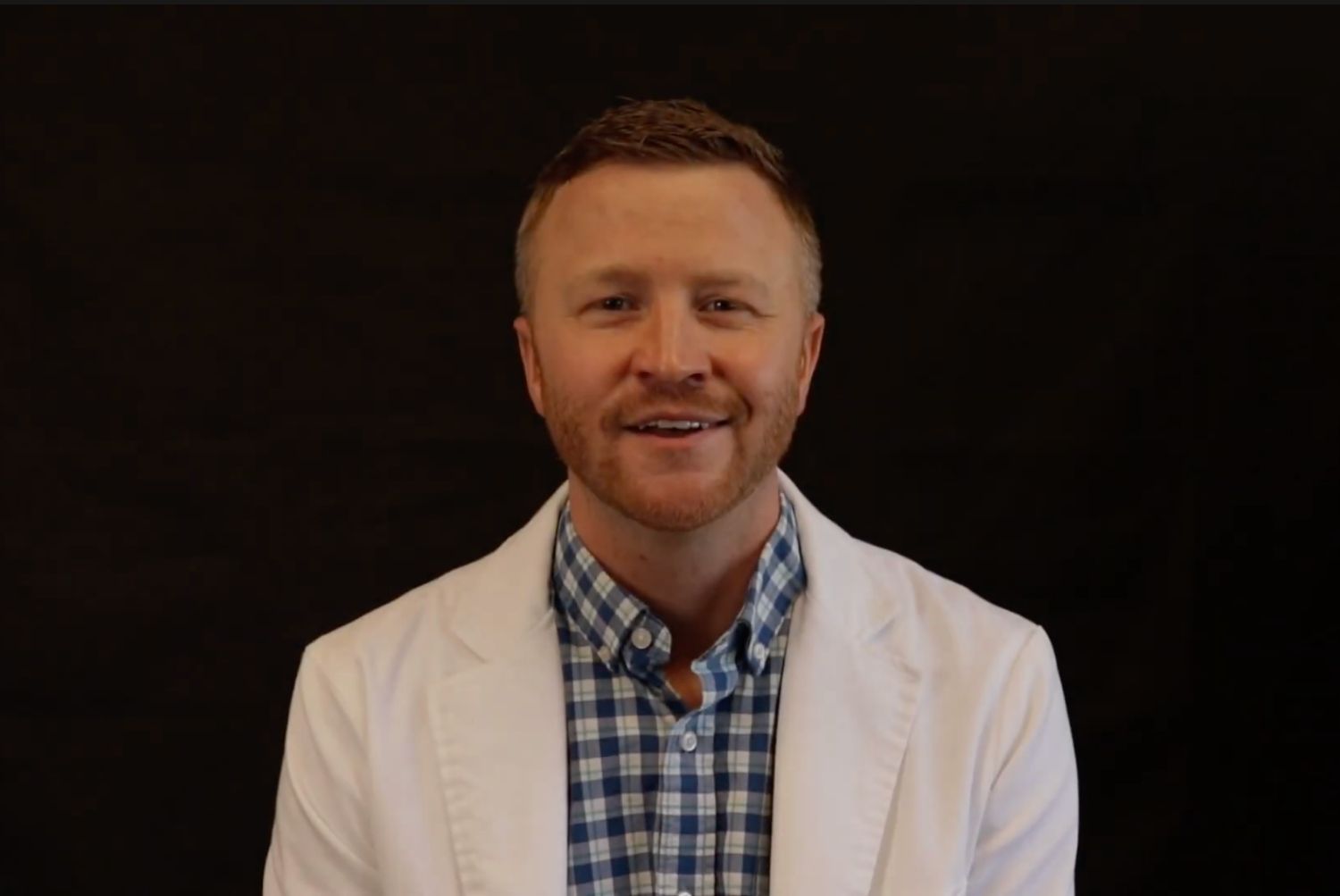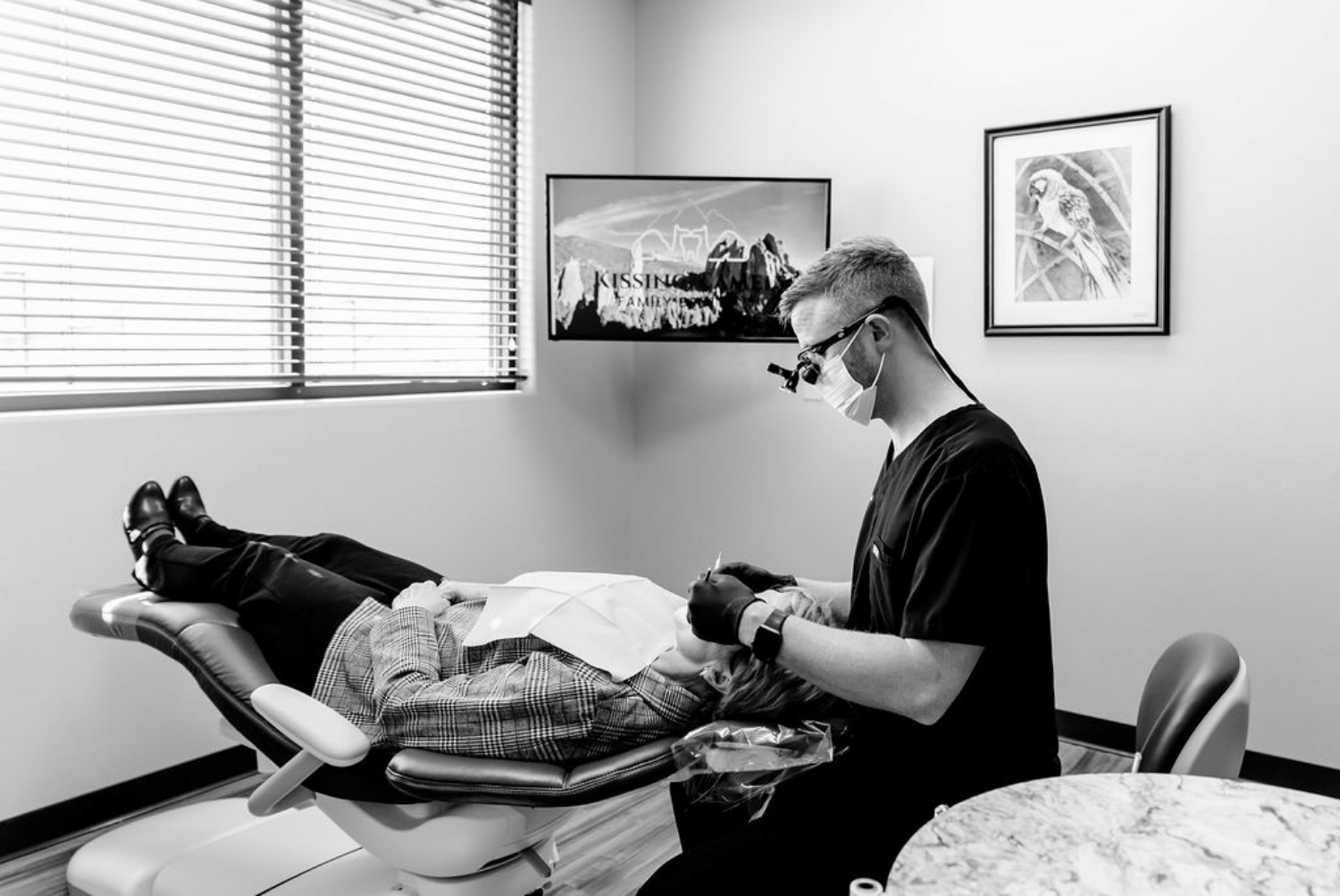Celebrating Gum Care Month with Colorado Springs Dentists
Preventative dentistry is a priority for us at Kissing Camels Family Dentistry. Our Colorado Springs dentists always encourage our patients to practice good oral health habits. In honor of September being National Gum Care Month, we are sharing a few ways you can improve your gum health.
About Gum Disease
Gum disease, also known as periodontal disease, is a long-term infection of your gums. Without treatment early on, it causes loss of gum tissue, underlying bone, and, eventually, tooth loss. By the age of 45, more than 80% of Americans have some kind of gum disease. Fortunately, gum disease can easily be prevented.
Early Signs of Gum Disease
Gum disease can go without being noticed in the early stages, which is why it’s important to take care of your teeth daily. Some of the early signs of gum disease include:
- Swollen/red gums
- Sensitivity to hot/cold drinks or foods
- Receding gums
- Bleeding when brushing or flossing teeth
- Shifts in your smile
How to Care For Your Mouth & Avoid Gum Disease
- Brush your teeth twice a day using fluoride toothpaste. Sticky plaque constantly forms on the teeth, and if left there, it quickly hardens into tartar. This is a hard substance that can only be removed by your hygienist. Plaque and tartar can contribute to gum disease.
- Floss on a regular basis. In this case, regularly should be understood as “every day.” Brushing your teeth removes plaque, but only floss can clean in between teeth.
- To remove tiny particles and minimize plaque, our friend Dr. Dave Moghadam, a dentist in Easton, PA, recommends using mouthwash. Mouthwash does not replace brushing and flossing, but when used in conjunction with other healthy practices, it can help to freshen breath, eradicate bacteria, and keep teeth strong.
- Consume a well-balanced diet. A nutritious, balanced diet high in vitamins and nutrients and low in sugar will help your immune system fight off harmful bacteria, inflammation, and illness. Remember to eat your greens if you want to keep your teeth white!
- Every six months, visit your dentist in Colorado Springs, CO, for a thorough cleaning. Dr. Boals or Dr. Johnson can also examine your teeth and gums and recommend you to a periodontist if you have any concerns. It is critical to treat gum disease as soon as possible. If left untreated, it can ruin teeth, gums, bones, and connective tissue, as well as contribute to a number of health issues. So, plan an appointment with your dentist at least twice a year.
Dangers of Plaque
Plaque is the most common cause of gum disease. Furthermore, the bacteria in plaque create toxins or poisons that irritate the gums. They may cause them to enlarge, grow red, and bleed easily. Plaque can also solidify into calculus – or tartar — a harsh, porous substance. This can happen above or below the gum line. Periodontal disease degrades the supporting gum tissue and bone that hold teeth in place. Ultimately, it leads to permanent bone and tooth loss.
Contact Dentist in Colorado Springs, CO
Kissing Camels Family Dentistry is happy to help you improve your oral health. One of the best things you can do is schedule a professional cleaning and exam. Catching gum disease early on will ensure that your teeth are happy and healthy. Schedule your appointment today!











